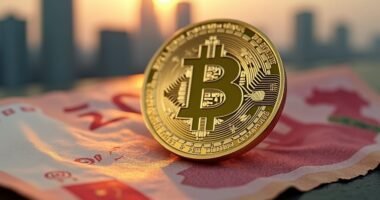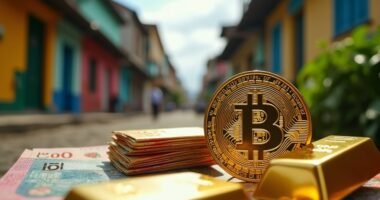As the economic landscape shifts like a game of Jenga, the Federal Reserve has issued a cautionary note regarding the potential fallout from former President Trump’s tariffs. These tariffs, which have set off a chain reaction of trade tensions, particularly with China, could lead to higher inflation and slower economic growth. Imagine trying to balance that Jenga tower while someone keeps pulling out blocks—it’s a precarious situation!
The Fed’s primary aim is to maintain stable prices and maximum employment, a balancing act more delicate than a tightrope walker on a windy day. They’ve kept interest rates unchanged, despite the looming specter of inflation, as they tread carefully through this economic minefield. Recent data shows solid hiring, with 228,000 jobs added in March, but uncertainty hangs in the air like a cloud of smoke after a fire drill. The markets have not reacted kindly to the tariffs either, with stock prices taking a nosedive that would make a rollercoaster rider queasy.
The Fed’s balancing act of stable prices and maximum employment is as tricky as tightrope walking in a storm.
So what does this mean for inflation? Well, tariff-induced price increases are expected to pinch consumers’ wallets. If you thought your grocery bill was already high, brace yourself for even steeper prices, as China’s 34% tariff on all U.S. products is set to exacerbate the situation. Furthermore, Powell notes the potential for sustained high inflation due to tariffs, which could further strain household budgets. In this context, it’s crucial to understand how global regulations affect market dynamics and pricing structures.
And to add to the fun, these inflationary effects may stick around longer than guests at a party when the host runs out of snacks. Economic growth is forecasted to slow down, making businesses hesitant to invest or hire new employees—imagine trying to throw a party when you’re not sure who will show up!
The uncertainty surrounding trade dynamics complicates policy decisions, and retaliatory tariffs from other countries could throw a wrench in the works. In this ever-shifting economic landscape, the Fed’s cautious approach to monetary policy is essential.
They aim to control inflation while keeping an eye on growth, all while hoping for a better outcome than a game of Jenga gone wrong.









